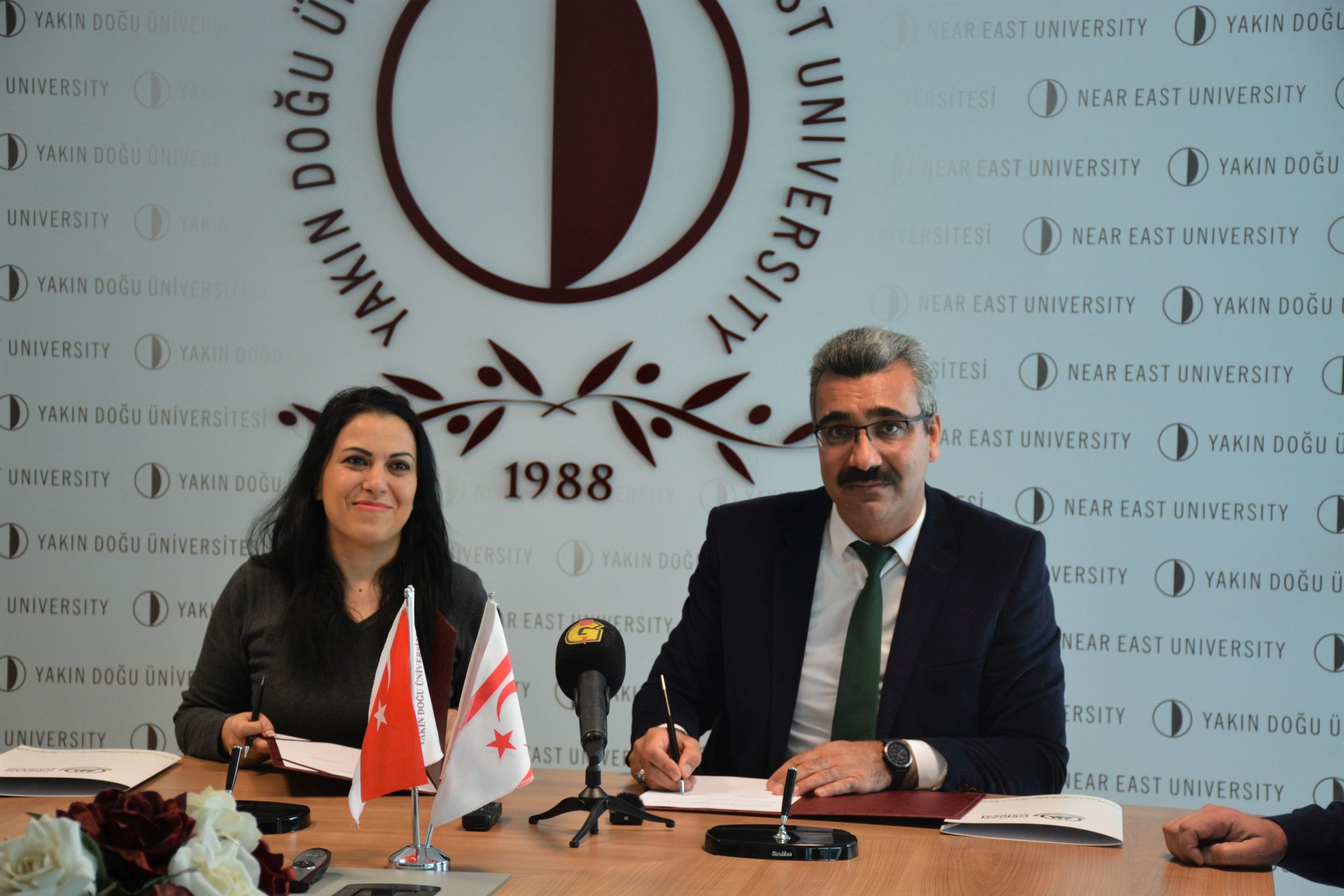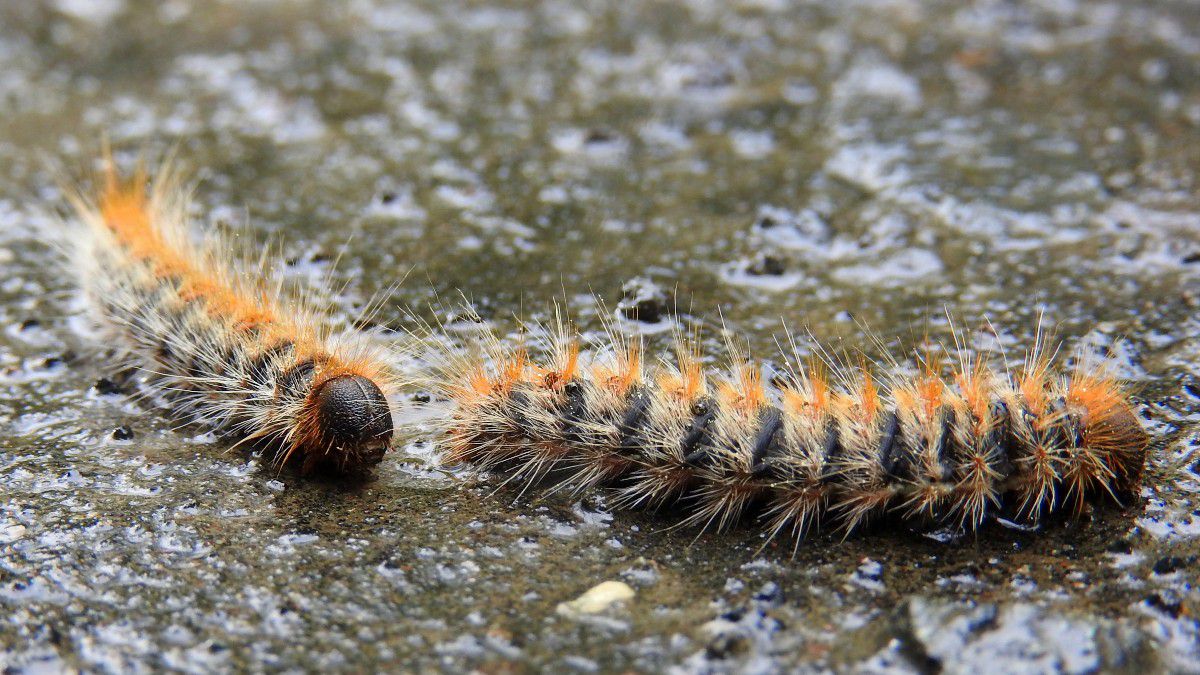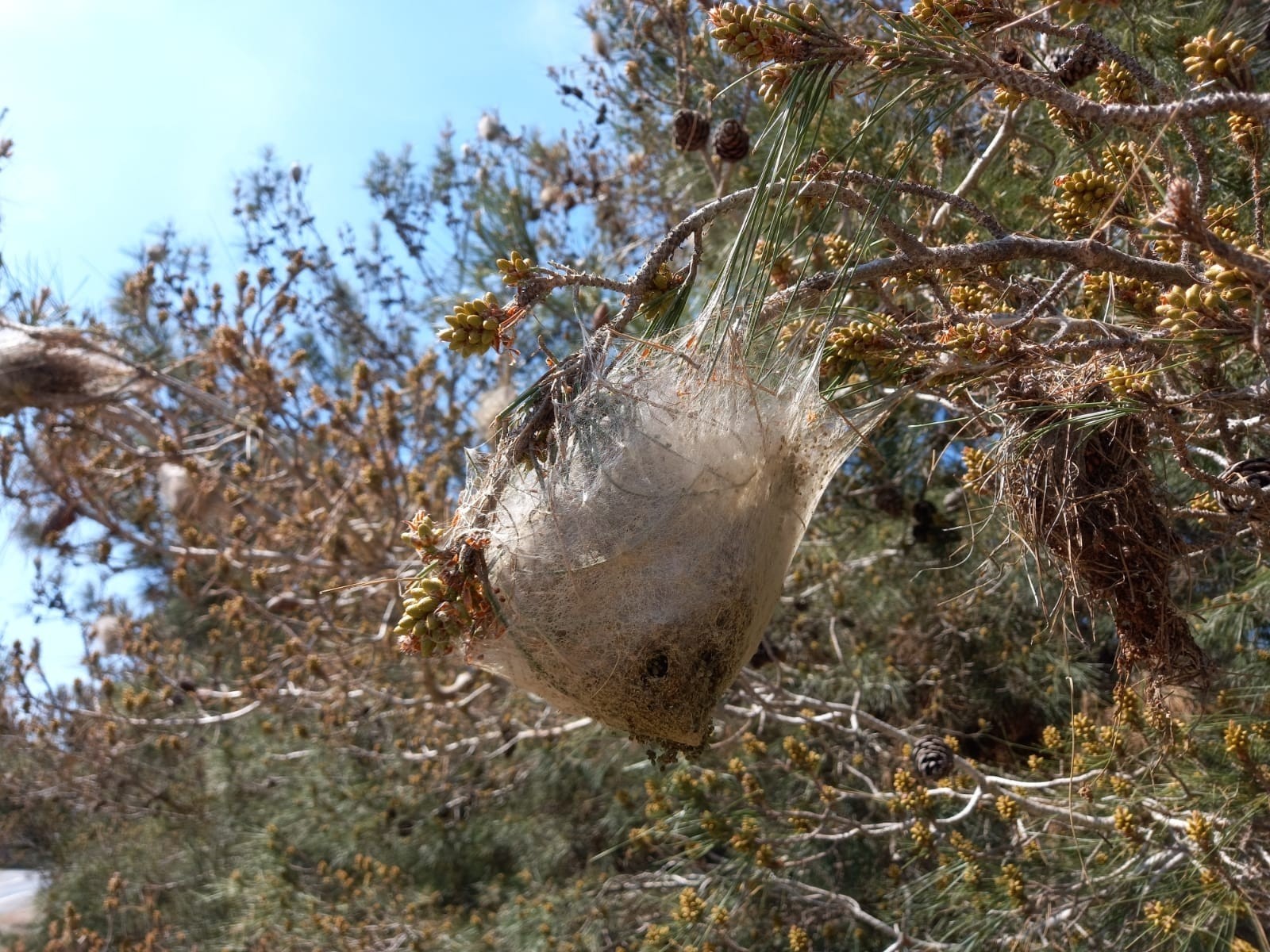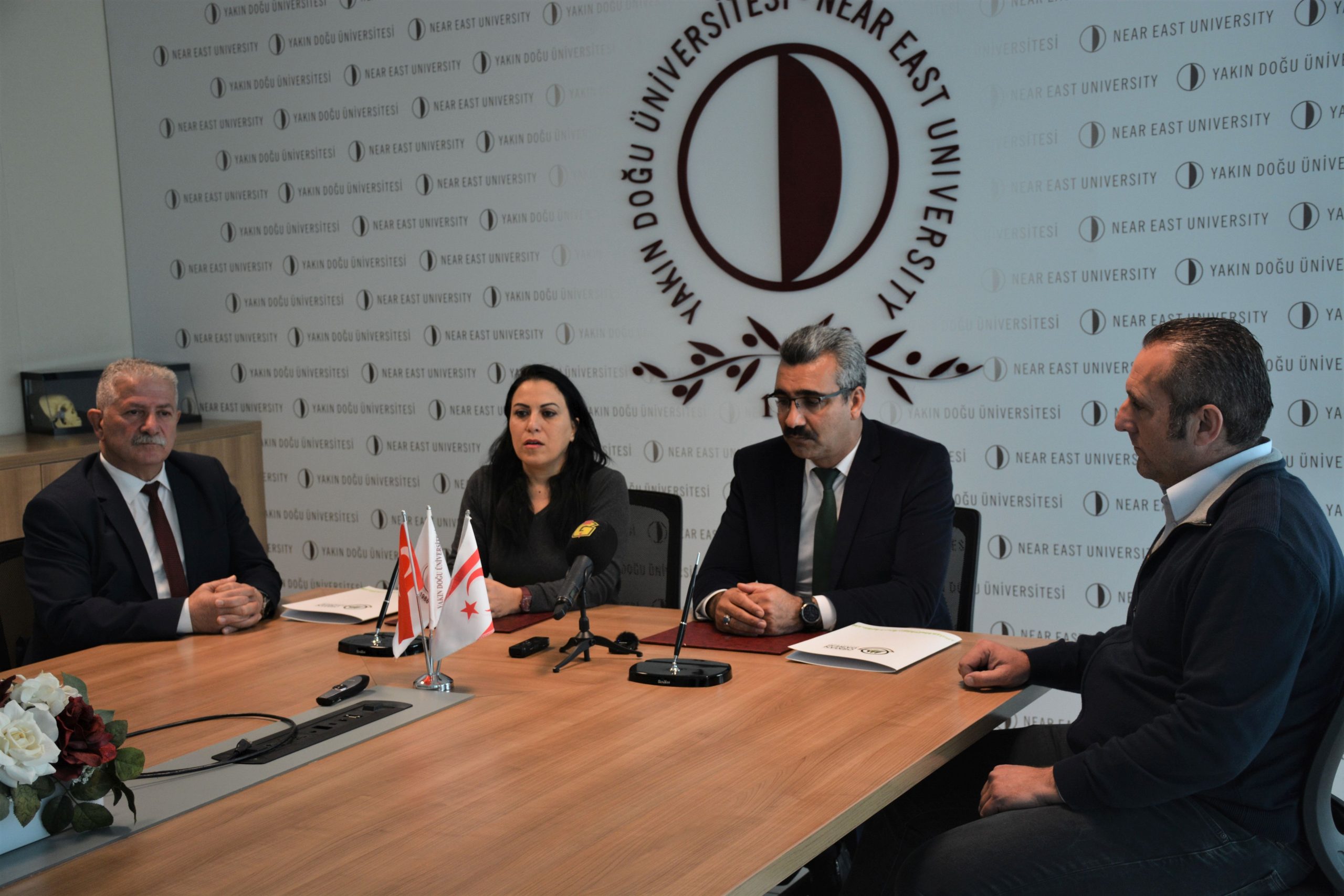
With the approach of spring, pine beetles reproduce in dense clusters in areas with pine trees, while they multiply by eating the shoots of the pine trees, causing great damage to the forests. These insects, which are seen in the Mediterranean basin, are also quite common in the Turkish Republic of Northern Cyprus. Near East University Faculty of Agriculture and the Forestry Department of the Ministry of Agriculture and Natural Resources aim to prevent the destruction caused by these insects in forests by signing a scientific cooperation protocol to fight against the “pine beetle”, a forest pest. With this protocol, which will last for 5 years, the data collected during the fight against pine beetles will reveal the success rates of the applied control methods.

Pine beetles, which dry up pine trees, pose a risk to humans as well!
The insects, which come out of their pouches on the pine trees in February and gather in clusters in the form of caterpillars, intensively destroy the tree they are in before turning into butterflies. Pine beetles, which cause regression in the development of the tree and dryness in its branches, can also cause the trees to dry completely.
Pine beetles, which damage the forests, can also pose a risk to humans. In case of contact with insects, allergic reactions that cause intense itching can occur. Pine beetles, which can attract the attention of young children as they travel in long queues one after another, can pose serious risks for children with allergic predisposition.

Scientific control of pine processionary beetles
With the “Pine Beetle Integrated Control Scientific Cooperation Protocol” signed between the Near East University Faculty of Agriculture and the Forestry Department of the Ministry of Agriculture and Natural Resources, it is aimed to develop training programs for the personnel of the Forestry Department and for the undergraduate and graduate students of the Near East University to take an active role in the scientific research part of the project in determining the populations of pine beetles that cause great damage to pine trees in the TRNC forest areas, and developing integrated control methods and principles.
With the protocol signed by Near East University Faculty of Agriculture Founding Dean Prof. Dr. Özge Özden and Salih Güneş, Director of the Forestry Department of the Ministry of Agriculture and Natural Resources, a long-term and scientific fight against the pine beetle is aimed. At the protocol ceremony signed at Near East University, Prof. Dr. Özge Özden and Forest Engineer Salih Güneş made statements. Ercan Poyraz, Head of the Forestry Department Conservation Branch, and Menteş Gündüz, Public Communications Coordinator of Near East University, also attended the signing ceremony.

Prof. Dr. Özge Özden: “We aim to establish a comprehensive and advanced system together with our Forestry Department in the fight against pine beetles.”
Stating that the increasing number of pine beetles caused great damage in the TRNC especially this year, Near East University Faculty of Agriculture Founding Dean Prof. Dr. Özge Özden said, “We aim to establish a comprehensive and advanced system together with the Forestry Department of the Ministry of Agriculture and Natural Resources in the fight against pine beetles. On the one hand, we will keep the population of pine processionary insects under constant observation, on the other hand, we will be in active cooperation in the fight against these pests.”
“For the fight to be effective in the long term; Trapping, biological control, increasing bird nests, biological insecticide application (insecticide) and the main control methods we call mechanical warfare should be applied in an integrated and systematic way. Prof. Dr. Özge Özden said, “As Near East University Faculty of Agriculture, we will work with the Forestry Department to implement these long-term methods. At the same time, we will carry out training activities for the personnel of the Forestry Department.”
Stating that regular records of the data obtained as a result of the studies that will last for 5 years, Prof. Dr. Özden said, “By determining the success rates of the control methods we will carry out against pine scavengers, we will create a scientific roadmap for the future in the fight against these pests.”
“There are some methods of fight actively implemented by our Ministry and the Forestry Department. Within the scope of biological control, many methods have been tried, such as hanging bird nests, a trap or islet method, raising predatory insects that eat pine beetles,” said Prof. Dr. Özge Özden, and added; “Within the scope of this protocol we signed, we will map the bird nests placed and fill the deficiencies. Reminding that it is one of the most important principles of Near East University to transform the scientific studies they carry out for the benefit of society, Prof. Dr. Özden said, “I would like to thank the Ministry of Agriculture and Natural Resources and the Department of Forestry for their determination to cooperate in this important issue.”
Salih Güneş: “With the cooperation protocol we signed, we will have the opportunity to apply the methods of struggle with scientific support.”
Speaking at the signing ceremony, Salih Güneş, Director of the Forestry Department of the Ministry of Agriculture and Natural Resources, said, “The damage caused by the pine beetles this year was more than in other years. With the cooperation protocol we signed with the Near East University Faculty of Agriculture, we will have the opportunity to apply the methods of struggle with scientific support.”
Noting that trees damaged by pine beetles should not be sacrificed immediately, Güneş said, “Trees damaged by these insects may re-sprout after the vegetation period.”
Forest Engineer Salih Güneş, who also emphasized that pine beetles can stay under the ground for up to eight years, said, “Eight years is a long process. Therefore, it is of great importance that the struggle carried out is long-term and maintainable.”